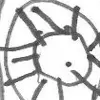I’ve wanted to try it for a long time, but never got around to it. I’m curious about any techniques that are more grass roots outside of the commercialized space, like what are the absolute minimum things needed when repeatability, convenience, and time are not important factors, but money and access to rare markets is extremely limited? What have you made before?
Like:
- a (blank) makes a good screen, or (blank) is an alternate technique to screens
- (blank) can work as a replacement for emulsion
- (blank) is an alternative for ink
I’m personally interested in printing on t-shirts, but also printing silkscreens on circuit boards.
Ive done it just for fun. It was some time ago. Bought a screen in a frame, a squeegee, tried a couple mask methods but was most pleased with the photosensitive stuff. It is quite fun and results were impressive for the short time I spent on it.
Find a local place that has the equipment. I have friends running successful art print businesses using a local art studios gear, and they offer classes and are great for community too. It seems really fun and rewarding!
This is probably one of your better bets and you’ll learn far more than Lemmy currently has to offer, unless one of those production people who have worked in the industry (like my former colleagues) ends up seeing this.
I know some general stuff, as my work involved having operational knowledge, but not enough to give advice that you’re looking for.
Do your friends have a website? I’m always curious to find good ideas to steal for other communities!
This is one of the local spaces and the work made there: https://www.studiotwothree.org/shop
Get a cheap screen printing frame holder thing off the Internet, order some ink and a squeegee, I used to burn my own screens but now there are places that will burn your art and mail it to you pretty quickly and it’s way better, easier, faster than trying to get an exposure perfect on your own. I do t shirts but it’s pretty simple. YouTube a video on how to technique and you’ll be golden
30ish years ago, I burned my own screens using this red film that you would cut with an xacto knife and peel off the parts you didn’t want. Omg it was so tedious. We were manually doing the job of a modern Cricut.
About 5 years ago I wanted to do a project but no longer had any of my old gear. Bought a screen online and for sure bought the upgrade for them to burn the art on it for me. So worth it. I was so tickled that that service even existed.
Haha insane, I swear this popped into my head out of nowhere yesterday.
Well not entirely nowhere, but I work with plant dyes. So far I’ve only dyed wool, but I suddenly had the idea to create some T-shirt printing process with what grows around here. A dye bath and ink are rather different things though, so I’d be curious for ideas how to turn plant pigment into ink, or where to look?
I’ve never even seen normal silkscreen printing done, but vaguely understand the idea. I’d try different fabrics stapled to a wooden frame as sieve, and maybe use wax to cover the non-print areas?
For a non natural method - could 3D printing be interesting for making sieves?
And what is an emulsion?
I’m not sure about dyes, but from what I’ve seen, the viscosity of silkscreen inks is about like honey. I think of dyes as a water base with a consistency of alcohol. Perhaps something like that could be sprayed with a mask, but I can’t picture it lasting for many wash cycles.
I’m a mod for the main 3d printing community here :) Indeed there are some examples that can be found where people print directly on fabric that has been attached to the print bed. Generally, TPU will last longer through more wash cycles, while PLA will work but well come loose eventually.
- emulsion - (photography) The coating of photosensitive silver halide grains in a thin gelatine layer on a photographic film.



